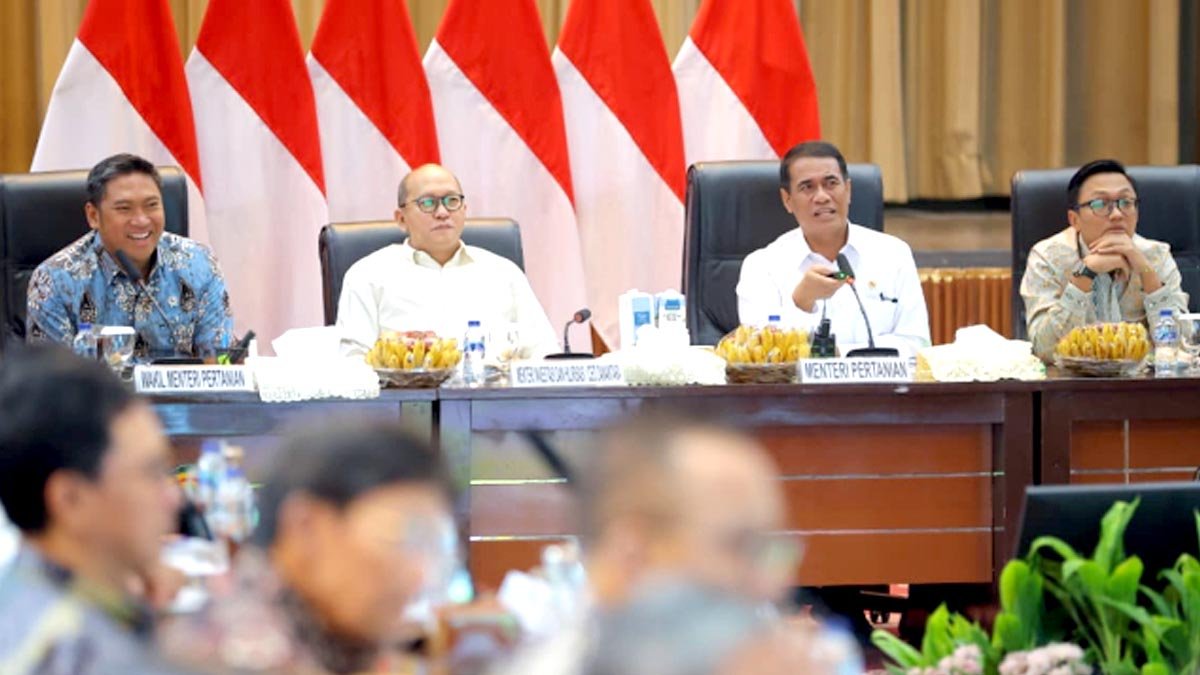PALMOILMAGAZINE, JAKARTA — The Indonesian government has reaffirmed that the future direction of national economic development will be rooted in sectors closest to the daily lives of its citizens: agriculture and plantations. Through an ambitious downstreaming program valued at IDR 371 trillion, the government aims to create millions of jobs, boost farmer welfare, and develop local resource–based industries across the country.
The commitment was underscored during the Finalization Meeting on Plantation and Industrial Downstreaming Programs held at the Ministry of Agriculture on Friday, led by Minister of Agriculture Andi Amran Sulaiman and Minister of Investment and Downstreaming/Head of BKPM Rosan Roeslani.
According to Amran, downstreaming is no longer just development jargon but a concrete strategy to position agriculture as the engine of national economic growth. “President Prabowo has instructed that agriculture must not stop at upstream production. Value addition must be created domestically so that farmers directly benefit from their industry,” he stressed in an official statement received by Palmoilmagazine.com, Monday (11/11/2025).
Also Read: Bappenas: Palm Oil Positioned as a Key Driver of Indonesia’s Green Transformation Toward Vision 2045
Amran explained that most of the investment will focus on key plantation commodities such as sugarcane, cocoa, cashew, and coconut. He highlighted the example of coconut processing in North Maluku, where prices have increased from IDR 600 to IDR 3,500 per nut. “What used to be sold raw can now be worth five times more. This is the power of downstreaming,” he said.
In addition, the government has allocated an extra IDR 20 trillion to strengthen integrated poultry and egg production in support of the Free Nutritious Meals (MBG) program. This initiative is expected to enhance food security while creating new jobs in the livestock sector.
“Every region will have integrated chicken and egg production centers. We will ensure stable supply and prevent future shortages,” Amran added.
Meanwhile, Minister Rosan Roeslani noted that agricultural downstreaming offers far broader social benefits compared to mineral downstreaming. “This sector is labor-intensive, generating immediate economic activity in rural areas. Every processing plant built means new jobs and a revitalized local economic ecosystem,” he said.
Also Read: IPOC 2025: US Tariff Negotiations Could Reshape Indonesia’s Palm Oil Outlook
Rosan further explained that the Ministry of Investment, together with Danantara and the Ministry of Agriculture, has identified priority downstreaming projects and assigned several strategic state-owned enterprises to implement them. Leading products such as coconut, cocoa, and cashew are seen as having high potential to penetrate premium export markets.
“We will move quickly using a collaborative governance approach. Government, state-owned enterprises, the private sector, and smallholders must all be involved to ensure real impact,” he stated.
This major initiative signals a shift in Indonesia’s development focus—from a raw commodity–based economy to one built on high value-added production. If successful, agricultural downstreaming will not only drive new economic growth but also embody national self-reliance in managing natural resources for the prosperity of its people. (P2)
